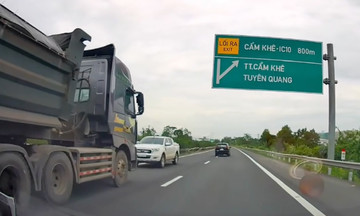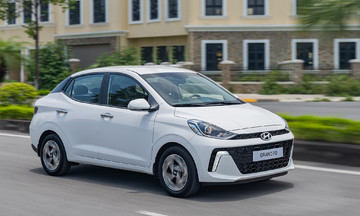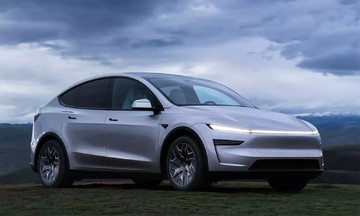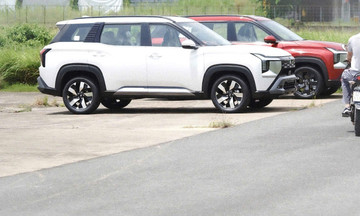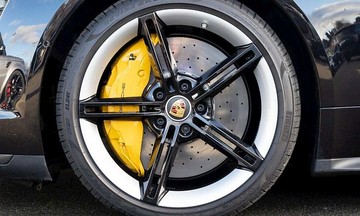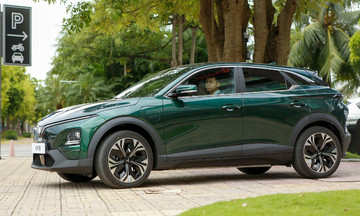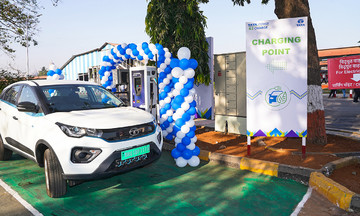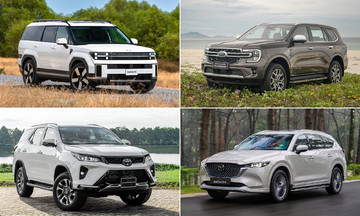The lawsuit, initially filed on 23/4/2021 in Miami-Dade County Court, Florida, by Dillon Angulo and the family of Naibel Benavides Leon, seeks damages and medical expenses related to the accident.
The accident occurred in April 2019 when a Tesla Model S equipped with autopilot technology crashed into a parked car in Key Largo, Florida, killing Leon and seriously injuring Angulo.
According to court documents, the driver of the Tesla, George McGee, had activated the autopilot function of his 2019 Model S while driving on a two-lane road in Key Largo on 25/4/2019. McGee dropped his phone as he approached an intersection and became distracted while reaching down to retrieve it.
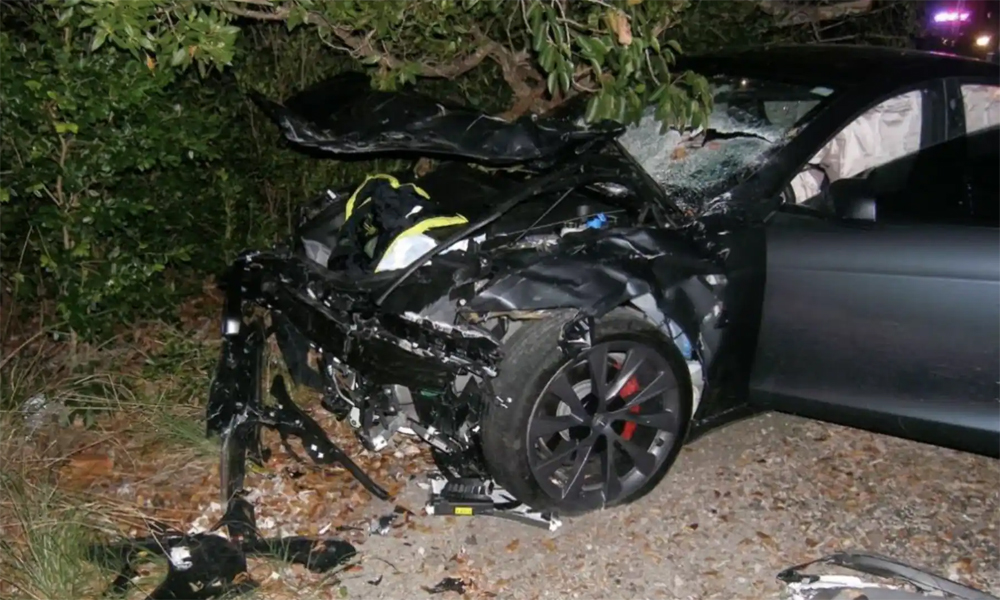 |
The Tesla Model S after the fatal crash in April 2019. Photo: FHP |
During this time, the Tesla reportedly ran through the intersection at over 96 km/h without braking before colliding with a parked Chevrolet Tahoe. The accident resulted in the death of Naibel Benavides Leon and serious injuries to her boyfriend, Dillon Angulo, who were standing near Angulo’s pickup truck.
The central question in the case is whether the car’s autopilot system malfunctioned and contributed to Benavides' death. According to Todd Poses, the plaintiffs’ attorney, flaws in the autopilot system's design prevented it from detecting obstacles like the Tahoe, leading to Leon’s death.
In a filing on 26/6, Tesla argued that the autopilot feature "does not make the car 'self-driving'" and that McGee was aware that he "remained responsible for safely operating the vehicle even with autopilot engaged".
In a statement to CBS MoneyWatch, Tesla stated, "The evidence clearly shows this crash had nothing to do with Tesla’s autopilot technology. Instead, like so many other unfortunate accidents since the invention of the cell phone, this crash was the result of driver distraction. To his credit, he took responsibility for his actions as he was searching for a dropped cell phone while pressing the accelerator, speeding, and overriding the car’s systems at the time of the crash. In 2019 when this happened, there was no collision-avoidance technology that could have prevented this tragic crash."
Mary Cummings, a professor of engineering at George Mason University and an expert on advanced driver-assistance systems, testified to the jury that the Tesla owner’s manual, which contains important warnings about how the system operates, is difficult for drivers to access.
She also said that before the crash, the company had issues with drivers ignoring computer-generated warnings and had not yet implemented so-called geofencing that other automakers used to prevent drivers from activating driver-assistance functions on roads not designed for them.
The trial, which began on 14/7 and is expected to last three weeks, is one of the first to test Tesla CEO Elon Musk’s claims that his cars are the safest. The trial comes at a critical time for Tesla, as it is working to roll out its robotaxi service, betting part of its future on self-driving technology.
My Anh



